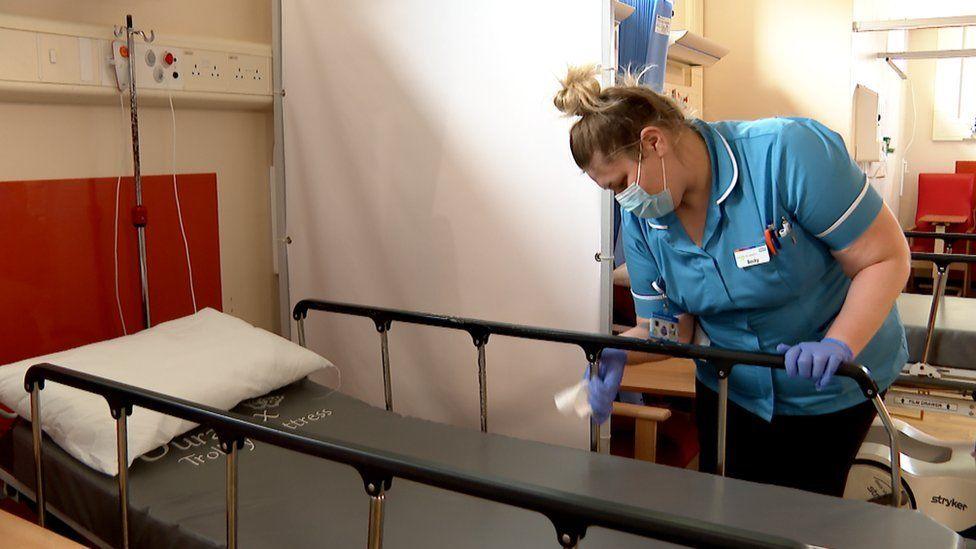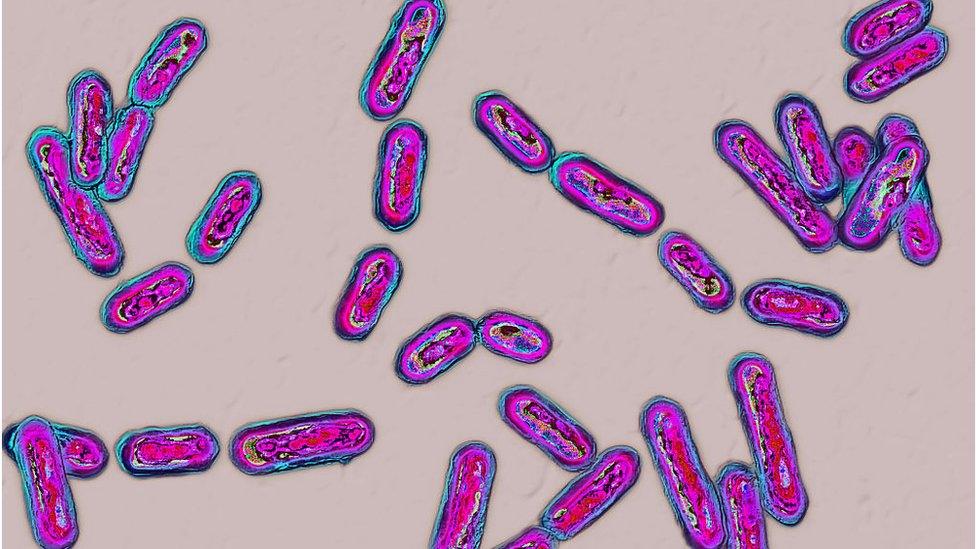Bleach does not kill common superbug, study finds

Research has shown bleaches used in hospital are not effective against C. diff
- Published
One of the main types of disinfectant used to clean hospital scrubs and surfaces does not work against a common superbug, according to a new study.
Research by the University of Plymouth showed spores of Clostridium difficile, commonly known as C. diff, are completely unaffected despite being treated with high concentrations of bleach used in many hospitals.
The study found the chlorine chemicals are no more effective at damaging the spores when used as a surface disinfectant, than using ordinary water.
Dr Tina Joshi said "the research should have significant impact on current disinfection protocols in the medical field globally".
Dr Joshi, Associate Professor in Molecular Microbiology at the university, carried out the study with Humaira Ahmed, a fourth year medicine student from the university’s Peninsula Medical School.
Writing in the journal Microbiology, they have called for research into alternative methods of disinfecting C. diff spores, to reduce the risk of patients and staff contracting and spreading the superbug.
Dr Joshi said: "With incidence of anti-microbial resistance on the rise, the threat posed by superbugs to human health is increasing.
"But far from demonstrating that our clinical environments are clean and safe for staff and patients, this study highlights the ability of C. diff spores to tolerate disinfection at in-use and recommended active chlorine concentrations.
"It shows we need disinfectants, and guidelines, that are fit for purpose and work in line with bacterial evolution, and the research should have significant impact on current disinfection protocols in the medical field globally.”
C. diff is a microbe that causes diarrhoea, colitis and other bowel complications and is known to infect millions of people across the world each year.
Previous studies have shown it causes more than 12,000 deaths, external per year in the US alone.
The study examined spore response of three different strains of C. diff to three clinical in-use concentrations of sodium hypochlorite.
The spores were then spiked onto surgical scrubs and patient gowns, and examined using scanning electron microscopes.
Follow BBC News South West on Twitter, external, Facebook, external and Instagram, external. Send your story ideas to spotlight@bbc.co.uk, external.
Related topics
- Published31 August 2022
